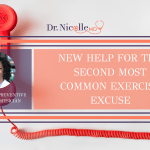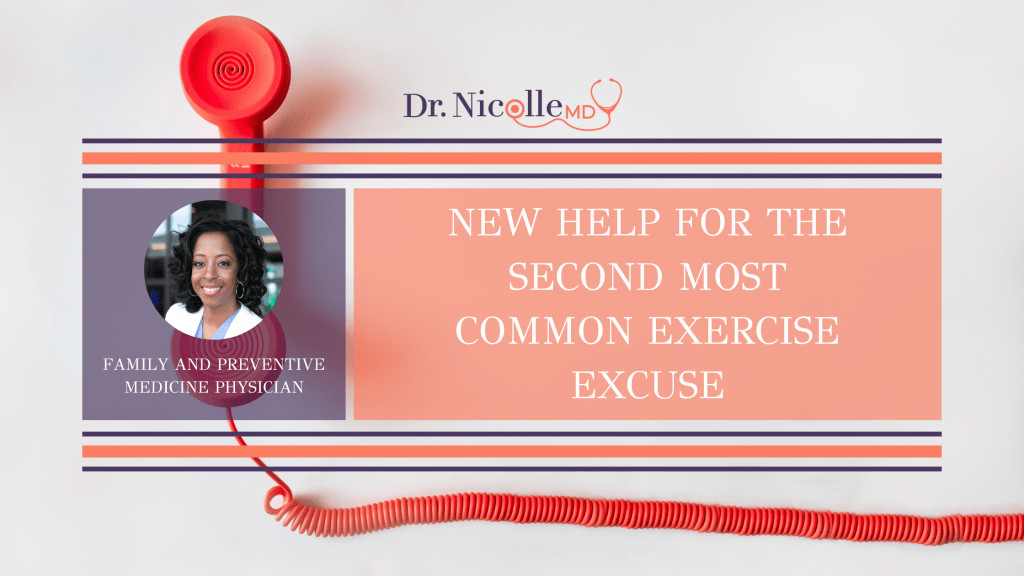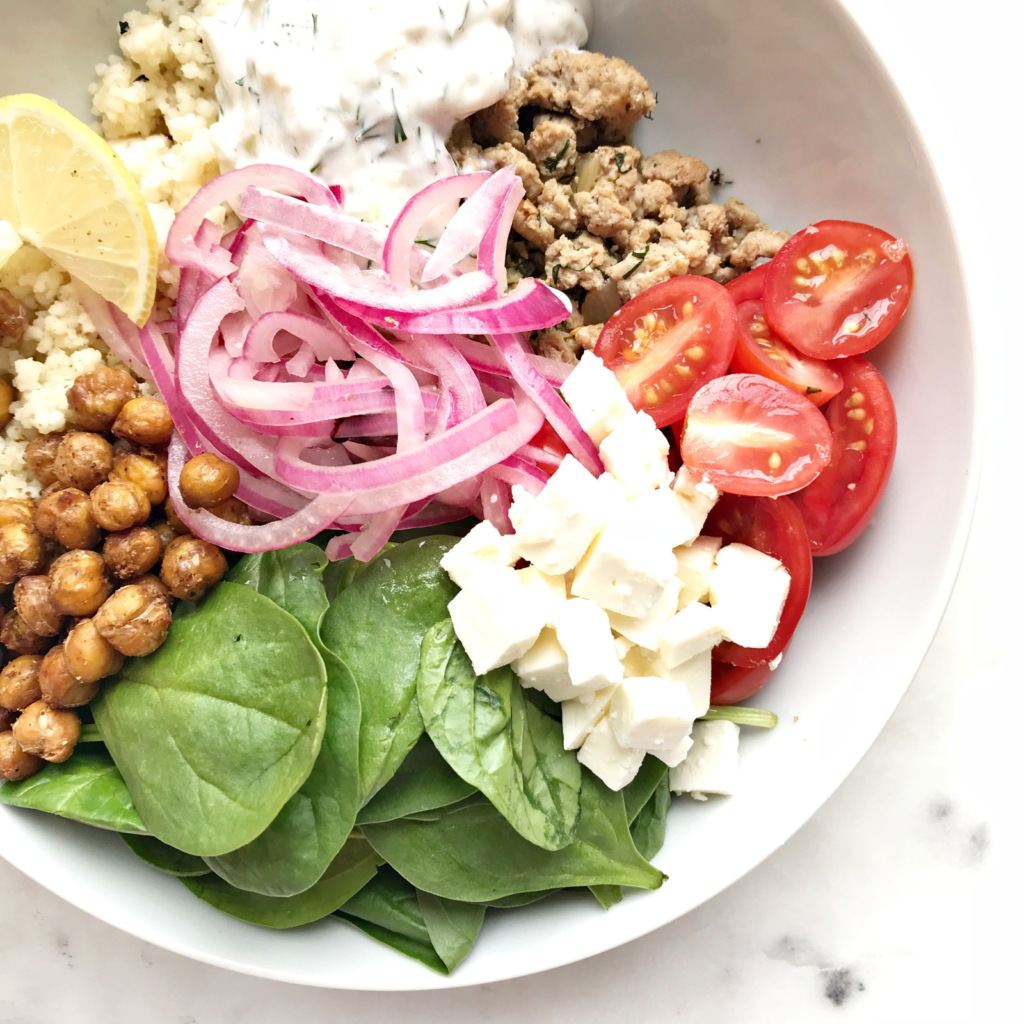

The most common excuses adults give for not exercising are lack of time and feeling uncomfortable when they exert themselves. While scientists haven’t yet managed to add more hours to the day, there may be new hope for the sedentary.
Some endurance experts are advocating caffeine or other substances to help reduce the perception of effort. While the approach is still controversial, it may someday become as acceptable as a nicotine patch for smokers or an appetite suppressant for dieters.
Until then, there are still the traditional ways to make physical activity more palatable even for the most confirmed couch potato. Try these tips that will help you change the way you think about exercise.

Transforming Your Attitude about Exercise
1. Congratulate yourself. Do you criticize yourself for being out of shape when you feel short of breath or sore after a visit to the gym? Take a page from athletes who welcome those kinds of physical sensations as proof they’re growing stronger and faster.
2. Focus on results. Keep your motivation in mind. Maybe you want to lose weight or reduce your risk of heart disease.
3. Maintain a log. Track your progress. Putting your program down in writing will make it easier to see how you’re advancing.
4. Find a buddy. Working out with a friend or signing up for an exercise class can be more fun than going solo. You’ll look forward to your time together.
5. Form a habit. Exercise is easier when it’s automatic. If you go for a run each morning, you’ll find yourself putting on your sneakers without even having to think about it.
6. Change your self-talk. Telling yourself that you dislike push-ups just reinforces the discomfort. Cheer yourself on instead. Celebrate your accomplishments like losing 5 pounds or moving up to an advanced Pilate’s class.
7. Be patient. It may take several weeks to see any visible results. Hang in there so you can reap the rewards of your efforts.

Working Out at Your Own Pace
1. Respect your limits. Pushing yourself too hard can make you want to give up. It also increases your risk of injury. Talk with your doctor if you have questions about your individual condition.
2. Take a walk. Walking is safe and effective for most adults. Start out with short distances, and gradually increase your time and pace.
3. Jump in the pool. Low-impact water exercises can be a healthy alternative for seniors or anyone who needs to protect their joints. If you have trouble finding a community pool, ask a local hotel if they offer gym memberships to non-guests.
4. Lean back. If you prefer dry land, how about pedaling on a recumbent bicycle? You’ll condition your heart without taxing your lower back and knees.
5. Count daily activities. Other kinds of movement qualify as exercise. You can burn calories and tone your muscles while you play with your kids and clean your house.
6. Adjust your schedule. You probably have certain times of day when you’re most productive. If your energy flags after work, lift weights in the morning or at lunch time.
7. Monitor yourself. Health experts agree that most adults can accurately judge their heart rate and level of exertion based on signs like breathing, sweating, and muscle fatigue. If you like using the latest gadgets, you can also buy a fitness tracker to help you decide whether you need to slow down or challenge yourself more.
It’s much easier to stick to an exercise program when you learn to like physical activity. Starting out gradually and thinking positive will help you to fulfill your workout resolutions so you can stay in top condition.
If you would like to receive a free resource sheet to help you take control of diabetes, click the button below to receive your gift.
I wanted to talk about this topic because it is absolutely possible to prevent and even reverse Type 2 Diabetes (but you cannot reverse Type 1). Yes, it’s possible! and emerging studies looking at lifestyle medicine and prevention support this! But I always tell my patients that you must be dedicated and diligent in adopting a healthy lifestyle to get the best results. You can create certain behaviors and practices that will not only enrich your life, but that you can pass on to your family, friends, and community, to help break the cycle of this chronic disease so that you can leave a legacy of health to your loved ones.
I use functional medicine and lifestyle medicine as the first line of treatment, before medications, to treat lifestyle-related chronic diseases. Lifestyle-related chronic diseases include diabetes, hypertension, obesity, and some cancers, just to name a few. Lifestyle practices, such as eating a low glycemic, whole-food plant-based diet and regular physical activity, can help you improve your blood sugar levels, maybe reverse type 2 diabetes. In certain cases, these approaches may even outperform pharmaceutical therapy.
But I always tell my patients that conventional medications may be appropriate at this time to prevent catastrophic illness, but over time, you can work to make the necessary lifestyle changes to possibly reduce and/or eliminate medications. Please remember to always consult your physician for your particular needs and circumstances prior to making any decisions whatsoever.
Is Dietary Supplementation Right For You?
When it comes to managing your blood sugars (in general), pre-diabetes, and diabetes, there are many things that you can do to help control your blood sugar levels. One important aspect is diet. What you eat affects your blood sugar, so it’s important to be mindful of what goes into your body.
But it is very important to note that we are not eating the same foods we ate years ago because the soils have been depleted of critical nutrients through current industrial farming practices. And because the soil is not as good as it used to be, the food supply (grown from the depleted soil) is not as good as it used to be. For example, you are not getting the same levels of chromium and magnesium as you would have gotten 30 or even 50 years ago.
Second, much of the food has been processed and genetically altered, which can impact the inherent and unique nutritional composition that each food possess. For example, ancient einkorn wheat has less gluten, more protein, more Vitamin A, and more beta carotene, than modern genetically modified wheat.
Third, the toxic load in the environment today is much higher than 100 years ago. We can see this with global warming, toxic landfills, polluted oceans and waterways, etc. Toxicity levels interfere with nutrient assimilation and absorption not just into the foods, but into our bodies as well. We often see elevated blood sugar levels with poor nutrition and toxicity.
In addition to diet, there are dietary supplements that can have an impact on blood sugar levels. Dietary supplements for diabetes are becoming increasingly popular as people look for ways to improve their blood sugar control.
For some people, vitamin and mineral supplements offer important health benefits. Supplements are designed to fight deficiencies found in our diet and complement the food we eat regularly. Supplements are basically “helping hands” to our daily food.
If you suspect that you aren’t getting the nutrients you need, consider shifting your focus from supplements to eating better.
And if you are unable to eat better, the supplements in my Blood Sugar Support Bundle may provide the extra boost you need.
These are my favorite Diabetes Prevention Supplements to use! This Blood Sugar Support Bundle will ensure you have the intake of the important vitamins, minerals, and probiotics to decrease inflammation and boost your innate wellness day and night. Taken together, it’s a solid plan for increasing your body’s natural resiliency while encouraging healthy blood sugar levels.
For best results make sure you use these supplements with dietary changes including a whole food plant-based diet, regular exercise (at least 2-3x per week), regular sleep (8 hours per night), and intermittent fasting (at least 1-3x per week).
It’s important to note that supplements are NOT a replacement for your regular medication regimen prescribed by your doctor. However, they can be used in addition to help manage your blood sugar levels.
Supplements have the potential to interact with diabetes medications, so it’s important to speak with a healthcare provider before starting any new supplement regimen. Have you tried any dietary supplements for your diabetes? Share your experience in the comments below!
Tools For Diabetes Prevention and Monitoring
Blood Sugar Monitoring
As you know, I always stress the importance of taking control of your health. Monitoring your blood sugar levels is one of the best ways to do this. To do this, a single drop of blood is collected with disposable lancets and placed on a disposable test strip, which you insert into a home blood-sugar monitoring device, called a glucometer.
The common times for checking your blood sugar are when you first wake up (fasting), before a meal, 2 hours after a meal, and at bedtime; however, you should check your blood sugar as many times a day as your health care team suggests.
Monitoring your blood sugar level provides you and your doctors with important knowledge about how food, activity, medication, stress, and other elements might affect your blood sugar levels. This data will assist you and your doctor in developing a therapy plan that is suited to your demands.
There are several types of blood glucose meters, lancets, and test strips to choose from. I often recommend this glucometer, lancets, and test strips.
Weight Monitoring
Since weight management is very important in combatting chronic diseases such as diabetes, I recommend that you be mindful of your weight and its fluctuations, and that you monitor your weight AT LEAST on a weekly basis. I recommend a scale that includes a body composition monitor (*this scale cannot be used with a pacemaker or other implanted devices).
Physical Activity
Physical activity (or exercise) can improve your health and reduce the risk of developing several chronic diseases like high blood pressure, type 2 diabetes, and cancer, just to name a few. Physical activity actually improves insulin sensitivity. Physical activity can improve your mood, boost your immune system, and even help you maintain a healthy weight.
I often recommend yoga and resistance training for physical activity, but as you are aware, there are plenty of forms of “movement” that you can do! But for the basics, especially if you’re just getting started, yoga and resistance training are where I would start.
Yoga
Yoga can be a great way to improve your strength and flexibility, manage your stress, improve your heart health, and lose weight! I recommend using this yoga mat to get started with your yoga practice today!
Resistance Training
Resistance training is the mainstay for overall health. It not only has beneficial effects on reducing body fat, it also increases muscle size and strength. Here are some basic resistance bands that I recommend to everyone. They are great for physical therapy, yoga, strength training, and excellent for traveling.
Food!
Remember, living a healthy lifestyle including eating a whole foods plant-based diet and regular physical activity are the best ways to prevent diabetes.
The Diabetes Meal Plan is geared towards those people with diabetes or prediabetes. The foods are moderately low in carbs, low glycemic, fiber rich, and contain a balance of nutrients to help prevent blood sugar spikes and dips. Foods are also included that may help to lower blood sugar.
Please talk with your doctor about any complementary health approaches, including supplements, you use.
Dr. Nicolle Martin
Some of the links in this article are "affiliate links", a link with a special tracking code. This means if you click on an affiliate link and purchase the item, we will receive an affiliate commission.
The price of the item is the same whether it is an affiliate link or not. Regardless, we only recommend products or services we believe will add value to our readers.
By using the affiliate links, you are helping support our Website, and we genuinely appreciate your support.
Last updated on January 28th, 2022 at 11:10 am

Minimize Medications. Maximize Health.
Are you super busy but need to take control of your health? Are you tired of being tired? Subscribe to my “Minimize Medications, Maximize Health Blog” and I’ll give you 7 Tips to Get Healthy in No Time absolutely FREE.







